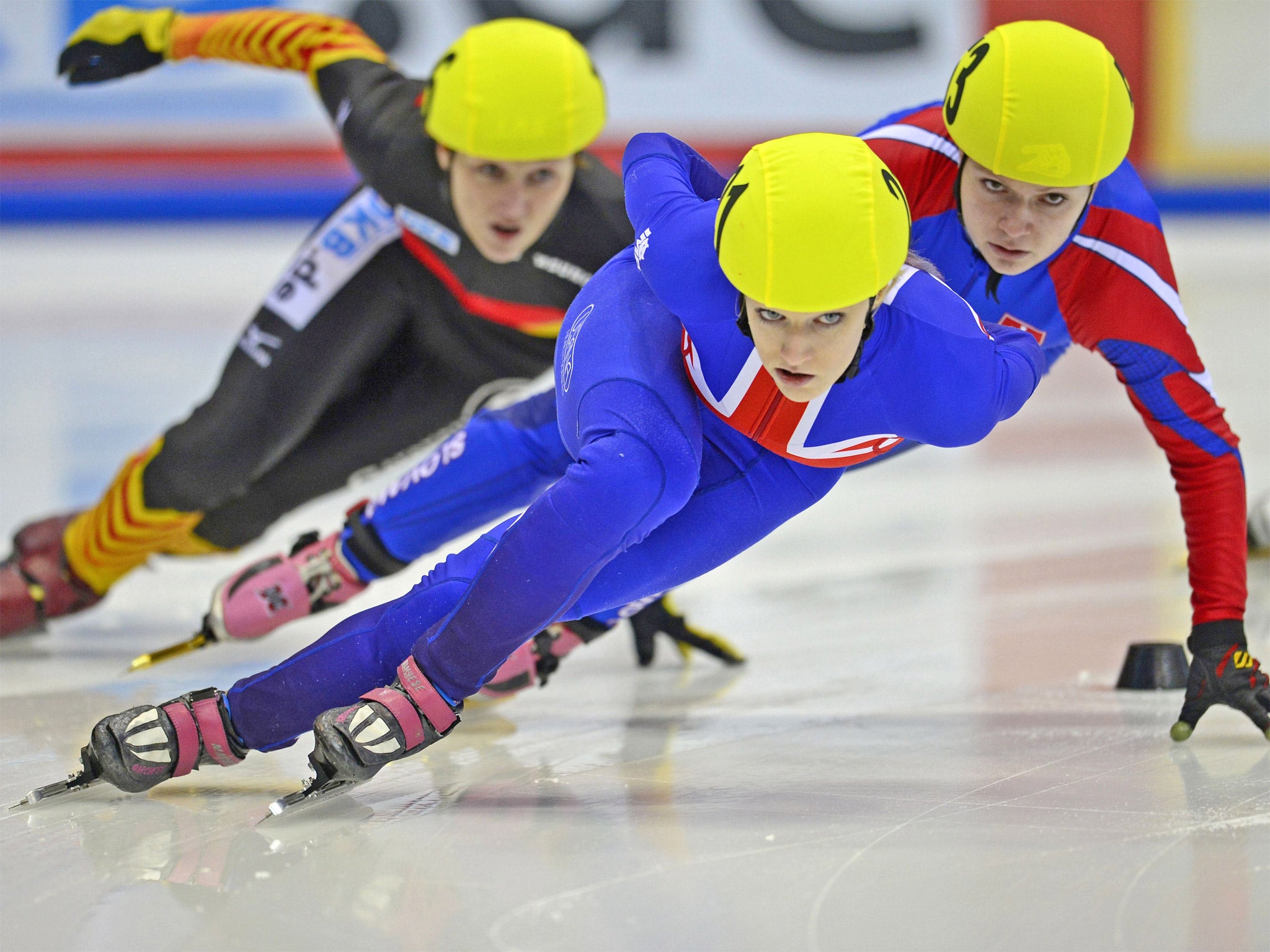Winter Olympics 2014: Team GB’s women poised to outclass men in medal race
Training against their male peers has given Britain’s female contingent an extra edge going into Sochi – raising hopes of the team’s best return since 1936

Your support helps us to tell the story
From reproductive rights to climate change to Big Tech, The Independent is on the ground when the story is developing. Whether it's investigating the financials of Elon Musk's pro-Trump PAC or producing our latest documentary, 'The A Word', which shines a light on the American women fighting for reproductive rights, we know how important it is to parse out the facts from the messaging.
At such a critical moment in US history, we need reporters on the ground. Your donation allows us to keep sending journalists to speak to both sides of the story.
The Independent is trusted by Americans across the entire political spectrum. And unlike many other quality news outlets, we choose not to lock Americans out of our reporting and analysis with paywalls. We believe quality journalism should be available to everyone, paid for by those who can afford it.
Your support makes all the difference.There’s something unusual about the freeskier James Woods. Not because he is tipped to take bronze at Sochi next month, but because he’s the only British man expected to win an individual medal at the Winter Olympics.
And that’s not because we aren’t predicted to do well. Quite the reverse: Britain is hoping for its best medal haul at a Winter Games since winning a gold, silver and bronze in Germany in 1936. It’s because all the other medal contenders are women.
From Lizzy Yarnold, the 25-year-old skeleton racer from Kent, who hopes to repeat the gold Amy Williams won four years ago in Vancouver, to the Scottish speed skater Elise Christie, tipped for a bronze, Britain’s women are expected to grab the headlines.
Winter sports coaches believe the unusual gender imbalance is no quirk of fate but instead reflects how our female athletes train: against their male peers, which makes them stronger. This is partly because numbers competing in disciplines such as speed skating are low, but also because young girls and boys are entering some of the newer sports like freestyle skiing as equals. Nicky Gooch, Christie’s coach, said her “extra performance had come from training up to the boys’ level. The [men’s] training group is harder; men are stronger.”
The other women tipped for individual medals are skeleton’s Shelley Rudman and curling’s Eve Muirhead. The 57-strong team announced today also included the three-time Olympian Chemmy Alcott. Both Winter Paralympic individual medal hopefuls are also female: the visually impaired skiers Kelly Gallagher and Jade Etherington are aiming to win Britain’s first golds at the games.
Warren Smith, a freeskier coach who is helping to train contestants on Channel 4’s new reality show The Jump, said the newer freestyle disciplines such as halfpipe and slopestyle, were attracting equal numbers of girls and boys. But he stressed that the big advantage was that for the first time Brits didn’t need to travel abroad to find the snow. “The most important thing is they can be practised at indoor snow domes and ski slopes in the UK. It’s big news for us because it means we can go head to head with other nations for the first time.”
Again, the two contenders are female: 18-year-old Katie Summerhayes from Sheffield, who trains at Castleford Sno!Zone, and Rowan Cheshire, also 18, from Stoke, who goes to Sochi a firm favourite after winning gold in a Ski Halfpipe World Cup event in Calgary this month.
Join our commenting forum
Join thought-provoking conversations, follow other Independent readers and see their replies
Comments